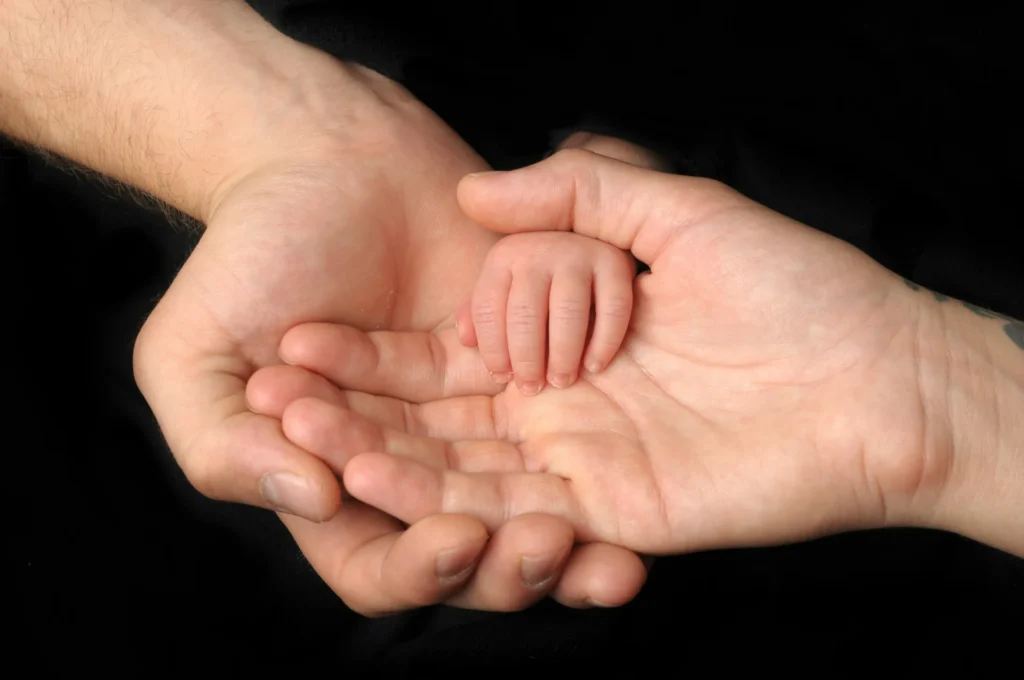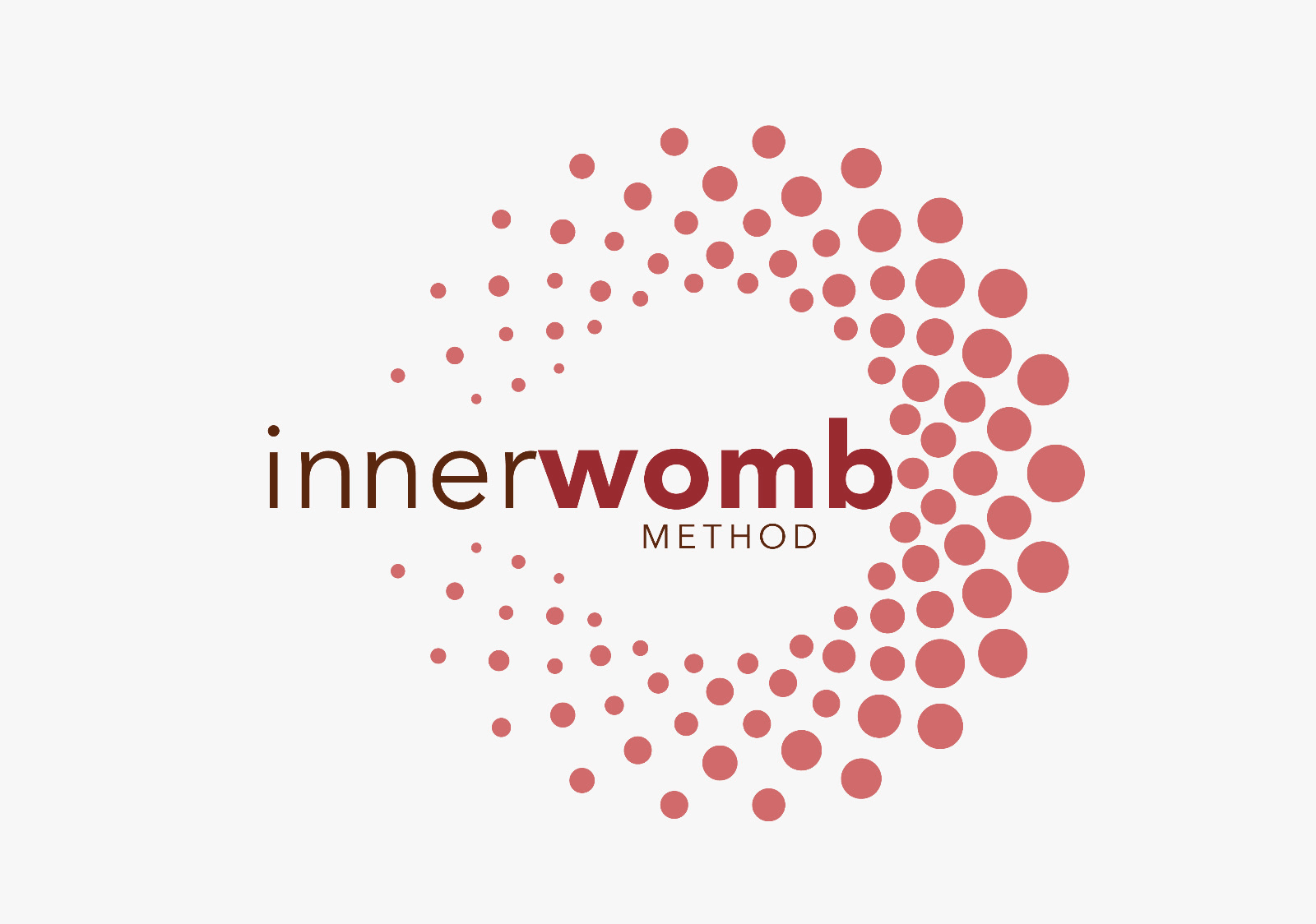Fertility Womb Trauma: How to Heal Unresolved Pregnancy & Birthing Experiences

Fertility womb trauma refers to the emotional and physical impact of negative experiences stored in the uterus. This trauma can stem from personal experiences, maternal stress during pregnancy, or even transgenerational influences. Understanding these factors is crucial for addressing fertility challenges and overall reproductive health. The following sections explore the science behind womb trauma, its implications, and potential pathways for healing and recovery. The journey towards parenthood can be fraught with unexpected challenges, and understanding the potential womb healing benefits for fertility can offer a beacon of hope and direction.
Understanding Womb Trauma

Womb trauma encompasses various emotional and physical scars that can influence a woman's reproductive health. To fully comprehend this complex issue, it is essential to explore its definitions, historical context, and the signs that may indicate its presence.
Defining Womb Trauma
Womb trauma refers to the accumulation of negative emotional and physical experiences stored within the uterus. This trauma can stem from personal experiences such as abuse or violence, or it may be inherited through generations, carried on by the emotional legacies of mothers and grandmothers. The trauma is not limited to the individual; it can manifest in several ways, affecting physical health as well as emotional well-being. Symptoms may vary significantly between individuals, influencing everything from menstrual health to overall mental state.
Historical Perspective and Ancestral Trauma
Understanding womb trauma requires a historical lens that recognizes the impact of generational trauma. Women may carry the emotional burdens of their ancestors, which can greatly affect their fertility and reproductive health. Historical events, such as wars, persecutions, and societal oppression, can have lasting effects. Research into transgenerational trauma has shown that experiences suffered by a mother during pregnancy can affect the epigenetic expression of her offspring, leading to potential health implications that can ripple through familial lines. For those of us seeking to unravel these deep threads, considering approaches such as ancestral womb healing can be a vital part of the journey.
Identifying Signs and Symptoms
Recognizing the signs and symptoms of womb trauma is crucial for effective healing. Common manifestations may include:
- Physical distress such as menstrual irregularities, pelvic pain, and infertility.
- Emotional challenges including anxiety, depression, and difficulty in forming intimate relationships.
- Recurring feelings of sadness or anger that seem to originate without direct cause.
- Unexplained physical symptoms that persist despite medical examination and treatment.
Individuals with womb trauma may also experience difficulty understanding and connecting to their bodies, leading to a cycle of disassociation. Healing begins with identification and awareness, laying the groundwork for further exploration and recovery.
The Science Behind Womb Trauma
The complexities of womb trauma are deeply rooted in biological and psychological frameworks. Understanding the scientific aspects provides insight into how traumatic experiences affect women's reproductive health and emotional well-being. This knowledge empowers us to approach healing with greater clarity and to recognise the profound intelligence of our bodies. Grasping these foundational concepts forms a key part of understanding the womb healing essentials.
Epigenetics and Trauma Transmission
Epigenetics plays a crucial role in explaining how trauma can influence health across generations. This field studies changes in gene expression that do not alter the DNA sequence but may be triggered by environmental factors and experiences, including trauma.
Research indicates that a mother’s experiences during pregnancy can leave molecular marks that affect her child. These molecular changes can be passed down, affecting not just the immediate offspring but potentially future generations as well. For instance, children born to mothers who experienced significant stress or trauma may demonstrate heightened vulnerability to psychological issues.
Several studies have documented the transgenerational transmission of trauma. This suggests that the effects of significant adverse experiences can be observed in grandchildren and even further descendants. The mechanisms involve changes in how genes are expressed rather than alterations to the DNA code itself.
Emotional and Physical Impacts
Womb trauma inflicts both emotional and physical consequences. The interplay between these two realms contributes to various health challenges that can be long-lasting and pervasive.
Hormonal Imbalances
Trauma stored in the womb can disrupt hormonal balance, which is critical for reproductive health. Hormonal fluctuations may lead to a range of issues, including irregular menstrual cycles, severe premenstrual syndrome (PMS), and infertility. The hypothalamic-pituitary-ovarian axis can be significantly affected by trauma, resulting in alterations to cortisol, estrogen, and progesterone levels.
Some women may experience symptoms such as:
- Difficulties in conceiving
- Bouts of excessive PMS symptoms
- Painful menstruation (dysmenorrhea)
Psychological Effects
The psychological repercussions of womb trauma encompass a variety of emotional struggles. Women may experience heightened anxiety and depression linked to unresolved trauma. These mental health challenges can exacerbate existing physical health issues, creating a cycle of distress.
Furthermore, conditions such as post-traumatic stress disorder (PTSD) can arise from significant traumatic experiences related to womb trauma. Symptoms may include:
- Flashbacks or intrusive memories related to past traumas
- Emotional numbing or detachment from reality
- Increased sensitivity to stressors
Understanding these interrelated impacts highlights the necessity for intentional strategies aimed at healing and recovery, acknowledging that both the emotional and physical aspects are deeply intertwined in the context of womb trauma.
Factors Contributing to Womb Trauma
The factors that contribute to womb trauma are complex and multifaceted. They encompass personal experiences, maternal stress, and the impact of transgenerational trauma, each playing a significant role in the emotional and physical health of women. Understanding these factors is crucial for addressing the underlying issues related to womb trauma.
Personal Experiences and Abuse
Personal experiences, particularly those involving trauma or abuse, can have profound effects on a woman's reproductive health. Such experiences might include:
- Sexual violence, which can lead to psychological distress and difficulties in intimate relationships.
- Emotional abuse, impacting self-esteem and body image, often resulting in complications concerning sexual health.
- Physical abuse, which may contribute to chronic pain and anxiety, further complicating reproductive functions.
These traumas not only affect individual well-being but can also lead to reproductive challenges, including infertility and hormonal disorders. Recognizing and addressing these issues can facilitate healing and improve overall health outcomes.
Maternal Stress During Pregnancy
The emotional and physical state of a mother during pregnancy has significant implications for fetal development. Maternal stress can manifest in various ways:
- Increased levels of cortisol, which can negatively influence fetal brain development.
- Emotional instability that may lead to insecure attachments post-birth.
- Disruption of hormonal balance, possibly affecting the mother’s ability to conceive in the future.
Research has indicated that prenatal stress can predispose children to mental health issues and even physical ailments later in life. Addressing the mother’s stress is vital for both her health and that of the developing child.
Transgenerational Trauma
Transgenerational trauma refers to the transmission of trauma effects across generations. It emphasizes how the experiences of one generation can impact the next. This phenomenon can be observed through various lenses:
Survivor Studies and Their Insights
Studies focusing on survivors of significant trauma, such as war or genocide, have demonstrated clear patterns of psychological distress in their descendants. These descendants may exhibit:
- Increased anxiety and depression rates.
- Psychosomatic symptoms with no apparent physical causes.
- Difficulties in forming close relationships due to inherited patterns of distrust and fear.
Transmission Mechanisms
The transmission mechanisms of trauma can be complex and are often rooted in both psychological and biological factors. Some of the key mechanisms include:
- Epigenetic changes that affect gene expression and can be inherited.
- Behavioral patterns learned from parents, including maladaptive coping strategies.
- Social and cultural narratives that shape how trauma is perceived and dealt with within families.
Transgenerational trauma not only impacts mental health but may also interfere with reproductive health, as unresolved trauma can lead to cycles of emotional and physical distress.
Health Implications Related to Womb Trauma
The repercussions of womb trauma extend beyond emotional disturbances, affecting various aspects of physical health, particularly in relation to fertility and menstrual health. Numerous studies indicate a significant connection between unresolved trauma and various health complications.
Fertility Challenges
Research illustrates that trauma can lead to various fertility-related challenges. Women experiencing womb trauma may encounter difficulties in conceiving or maintaining pregnancy. Possible issues include:
- Hormonal imbalances affecting ovulation.
- Uterine health problems that can prevent implantation.
- Persistent emotional stress that may disrupt reproductive cycles.
Studies suggest that mental and emotional wellness plays a crucial role in reproductive success. The accumulation of trauma can manifest in physical health issues that ultimately impact fertility.
Menstrual Cycle Disorders
Womb trauma often correlates with menstrual irregularities. Many women report conditions such as:
- Dysmenorrhea: severe menstrual cramps that can incapacitate.
- PMS: heightened emotional distress and physical symptoms before menstruation.
- Irregular cycles that can complicate family planning efforts.
The connection between these menstrual issues and womb trauma underscores the significance of addressing emotional and psychological wellness in conjunction with physical health.
Mental Health Concerns
Womb trauma significantly influences mental health, leading to various psychological issues that may persist throughout life.
Anxiety and Depression
Women with a history of womb trauma frequently experience heightened levels of anxiety and depression. These mental health concerns can stem from unresolved emotional pain associated with past experiences. Symptoms may include:
- Chronic feelings of sadness or hopelessness.
- Increased irritability and mood swings.
- Difficulty in managing stress and relationships.
Such mental health challenges can further complicate an individual’s ability to pursue or maintain healthy relationships, including romantic and familial connections.
PTSD and Trauma Reactions
Post-Traumatic Stress Disorder (PTSD) can arise from severe womb trauma. This condition is characterized by:
- Intrusive memories of traumatic events.
- Heightened arousal, such as difficulty sleeping or concentrating.
- A pervasive sense of disconnect from one’s body, leading to dissociation.
The presence of PTSD can complicate emotional recovery and overall well-being, necessitating targeted interventions.
Healing and Recovery from Womb Trauma
Healing from womb trauma involves a comprehensive approach that addresses both emotional and physical aspects of well-being. Various strategies can facilitate recovery, focusing on therapeutic methods and lifestyle changes to promote overall health.
Therapeutic Approaches
Therapeutic approaches play a crucial role in healing womb trauma. They encompass a variety of techniques that cater to both the body and mind.
Body-Work and Somatic Therapies
Body-work and somatic therapies focus on the connection between the body and mind. These techniques aim to release physical and emotional tension stored within the body. Some common methods include:
- Massage therapy to alleviate tension and promote relaxation.
- Yoga practices designed to open the pelvis and enhance body awareness.
- Somatic experiencing, which focuses on the body's sensations to help process traumatic memories.
By engaging the body in these practices, individuals can start to recognize and release unresolved trauma, leading to improved emotional and physical health.
Psychological Support and Counseling
Psychological support is essential in addressing the emotional consequences of womb trauma. Trained counselors or therapists can provide a safe space for individuals to explore their experiences. Key aspects include:
- Cognitive-behavioral therapy (CBT) which helps reframe negative thoughts and cultivate a healthier mindset.
- Trauma-focused therapy that specializes in processing traumatic experiences.
- Group therapy where shared experiences can foster healing and connection.
This psychological support can play a pivotal role in helping individuals understand their trauma and develop coping strategies.
Lifestyle and Holistic Strategies
Incorporating lifestyle changes and holistic strategies can greatly enhance the healing process. These practices aim to balance mind, body, and spirit.
Meditation and Mindfulness
Meditation and mindfulness practices can cultivate a sense of calm and presence. These techniques encourage individuals to reconnect with their bodies and emotions. Benefits include:
- Reduced anxiety and stress, promoting emotional balance.
- Enhanced self-awareness, allowing for a deeper understanding of one's trauma.
- Improved mental clarity and focus, empowering individuals to engage more fully in their healing journey.
Regular practice of mindfulness can be transformative, leading to a more grounded and peaceful state of being.
Nutritional Adjustments
Nutrition plays a critical role in physical health and emotional well-being. Making dietary changes can significantly affect one’s mood and energy levels. Important aspects include:
- Consuming whole foods rich in nutrients, such as fruits, vegetables, and lean proteins, to support overall health.
- Avoiding processed foods high in sugar and unhealthy fats, which can negatively impact mood and hormonal balance.
- Incorporating foods that support hormonal health, like omega-3 fatty acids and complex carbohydrates, to help stabilize emotions.
By focusing on nutritious eating habits, individuals can bolster their physical health, which is closely tied to emotional healing.
Building Awareness and Support
Creating a supportive environment is essential for women dealing with womb trauma. Awareness fosters understanding and enables better care and strategies for recovery.
Educational Resources
Access to educational resources is vital for informing individuals about womb trauma and its effects. These resources can empower women to understand their experiences and to seek appropriate help.
- Workshops and Seminars: Community organizations and health practitioners often host workshops that cover emotional, psychological, and physical aspects of womb trauma.
- Books and Articles: Reading literature written by experts in the field can provide insights into the emotional and physical impacts of womb trauma.
- Online Courses and Webinars: Various platforms offer courses discussing the connection between trauma and female reproductive health. These resources can be valuable for both personal understanding and healthcare practices.
- Podcasts and Videos: Educational podcasts and video resources can help disseminate knowledge in an engaging format, providing narratives that resonate with personal experiences.
Community and Support Networks
Building community connections is crucial for healing. Support networks and groups can provide spaces for sharing experiences, fostering dialogue, and building resilience.
- Support Groups: Local community centers or online platforms often facilitate support groups for women to share their experiences and challenges related to womb trauma.
- Peer Support: Encouraging friendships among women who have faced similar challenges can offer reassurance and comfort, creating a sense of belonging.
- Therapeutic Communities: Joining therapeutic groups led by licensed professionals can provide structured support and healing strategies for trauma recovery.
- Social Media Groups: Online communities on platforms like Facebook or Instagram can connect women globally, allowing for discussions, shared resources, and mutual encouragement.
The Role of Healthcare Providers
Healthcare providers play a pivotal role in addressing womb trauma. Their understanding and approach can significantly impact the recovery journey for women.
- Trauma-Informed Care: Providers trained in trauma-informed practices can create safe environments, encourage open conversations, and ensure that treatment plans address both psychological and physical health needs.
- Referral to Specialists: Primary caregivers can facilitate referrals to therapists, counselors, and support groups specializing in trauma recovery.
- Patient Education: Healthcare providers can supply educational materials and information about trauma impacts, empowering women to take control of their health.
- Continual Training: Encouraging ongoing professional development focused on trauma can help healthcare providers stay informed about the best practices in treatment and care approaches.
